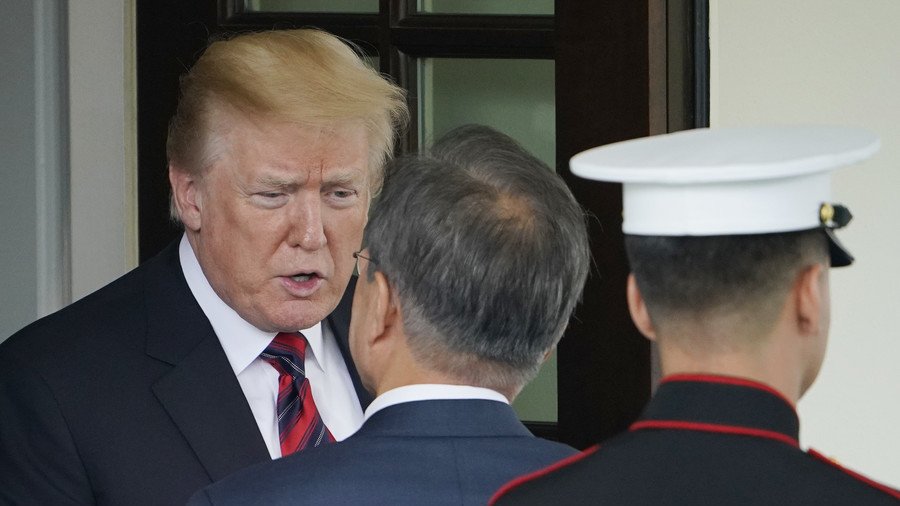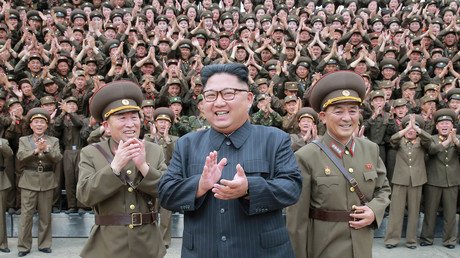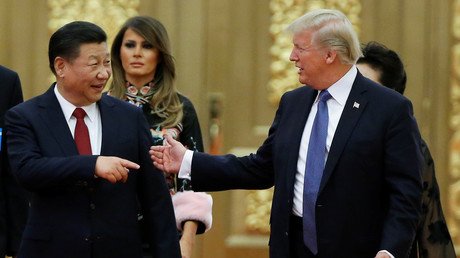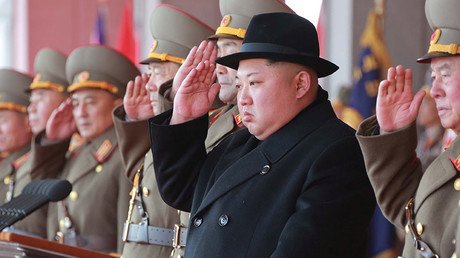N. Korea conundrum: ‘Washington confuses concept of negotiation with surrender’

The US is essentially irrelevant to the solution of the Korean problem and, if a deal is made between the North and South, the US will be asked to leave, says Daniel McAdams, executive director of the Ron Paul Peace Institute.
Donald Trump said during a meeting with the South Korean President Moon Jae-in in the US capital on Tuesday that his much-anticipated summit with North Korean leader Kim Jong-un on June 12 might not happen.
Both Washington and Pyongyang have previously suggested they may not be willing to hold talks unless certain conditions are met.
RT discussed the situation with McAdams, from the Ron Paul Institute for Peace & Prosperity.
Daniel McAdams: It is interesting to see how Trump and his top advisers seem to be at odds with each other. I don’t know if his management style is to create chaos and see if some order comes from it or what in fact may be his style, but a few days ago you saw John Bolton bringing up the issue of the Libya scenario. I don’t believe this was an accident. This is the same Bolton who just before he was confirmed as the president’s national security adviser wrote an article encouraging the US to have a first strike against North Korea. I don’t believe that he has changed his tune in just a couple of months. Here you have him basically talking about Libya as a model for North Korea. We know what happened to Libya: Libya voluntarily gave up its weapons and was overthrown nonetheless. If that is not the red flag to the North Koreans, I don’t know what is. And they did take it as a red flag: they said: “John Bolton is not welcome here. We don’t even want to talk to the South as long as this kind of nonsense is going on.”
RT: Where does the confusion come from?
DA: The problem is that Washington confuses the idea of negotiation with the idea of surrender. The meeting for Trump and Kim in Singapore should have been the beginning of a dialogue, of a process. Instead John Bolton and others have laid down the law: Here what you got to do. I think Bolton said: “Tell us where we should send our planes, pick up your stuff and take it away.” So, the whole idea is that you immediately surrender and we give you vague promises in the future making you very rich. If I were North Korea, particularly watching how the US tore up the Iran agreement, if you have any mind at all, you would be very skeptical…
RT: Do you think North Korea is taking the talk as seriously as they should knowing how the Trump administration behaves?
DA: I don’t think that is the case because I think the US is essentially irrelevant to the solution of the Korean problem. And that may be one of the silver linings – the fact that the Trump administration seems to have no clue what it is doing. The North and South are clearly moving ahead. We saw the historic meeting on the border. We saw the talks progress. Moon was elected to do exactly what he is trying to do. And I think it’s actually the US interventionist neoconservatives who are isolating the US and making us irrelevant which, from the libertarian perspective, is actually very good thing. I think this will go ahead.
It’s very important that people understand that President Moon of South Korea is really the most important president here, not Trump. I know Trump thinks it is always all about him, but President Moon is the one who is really in the driver’s seat here…It is possible that South and North Korea could continue to build their relations, there are a lot of economic issues that they could work on, diplomatic issues, reunification of families that have been separated – Kevin Martin, President of Peace Action
RT: Is the US ever going to pull out of South Korea? It’s not on the cards, is it?
DA: Things happened very quickly. Who would have thought just before December 1989 that the Wall would come down. These things do happen. Historic events do happen.…I think that the ball is in play with North and South Korea and the US is irrelevant. At some point if the deal is made between the North and South, eventually, the US will have to be asked to leave.
Think your friends would be interested? Share this story!















